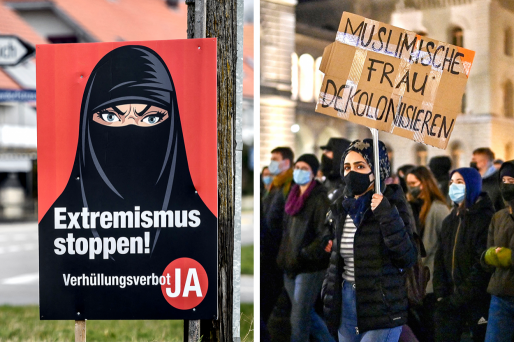People In Switzerland Have Voted To Ban Muslim Women From Wearing Burqas And Niqabs In Public Spaces
People in Switzerland have narrowly voted to outlaw facial coverings in almost all public places, a ban that includes niqabs and burqas, veils worn by Muslim women, in a referendum.

People in Switzerland have narrowly voted to outlaw facial coverings in almost all public places, a ban that includes niqabs and burqas, veils worn by Muslim women, in a referendum.
The ban passed with 51.21% to 48.8% votes on Sunday Mar. 7, according to official provisional results published by the federal government.
Wearing full facial coverings will now only be allowed in places for worship or sacred sites, out of health or safety concerns such as face masks for COVID-19 pandemic, and for local customs such as carnival.
The right-wing Swiss People’s Party (SVP) had proposed the ruling, saying it would stop violent street protesters from wearing masks.
Although the referendum did not explicitly mention Islamic face veils, the party campaigned with posters that featured a woman wearing a black face veil with the slogan “Stop extremism”.
Almost no one wears a burqa in Switzerland, and merely around 30 women wear niqabs, according to research from the University of Lucerne.
The only people who wear burqas are visitors from the Middle East who tend to be wealthy tourists from the Persian Gulf who boost the country’s tourism revenue, according to the New York Times.
Switzerland’s government had opposed the ban, saying it was “not up to the state to dictate what women wear,” according to the BBC.
The new law has been criticized by Muslim groups and human rights organizations, who called it “a dark day” and an attack against the Muslim community in the country.
Several European countries, including France, Denmark, the Netherlands and Austria have adopted similar bans.
In 2018, the United Nations Human Rights Committee said the ban violates the human rights of Muslim women and risks “confining them to their homes”, according CNN.
“Today’s decision opens old wounds, further expands the principle of legal inequality, and sends a clear signal of exclusion to the Muslim minority,” the Central Council of Muslims in Switzerland said in a statement, adding that it would challenge the ban in court.




